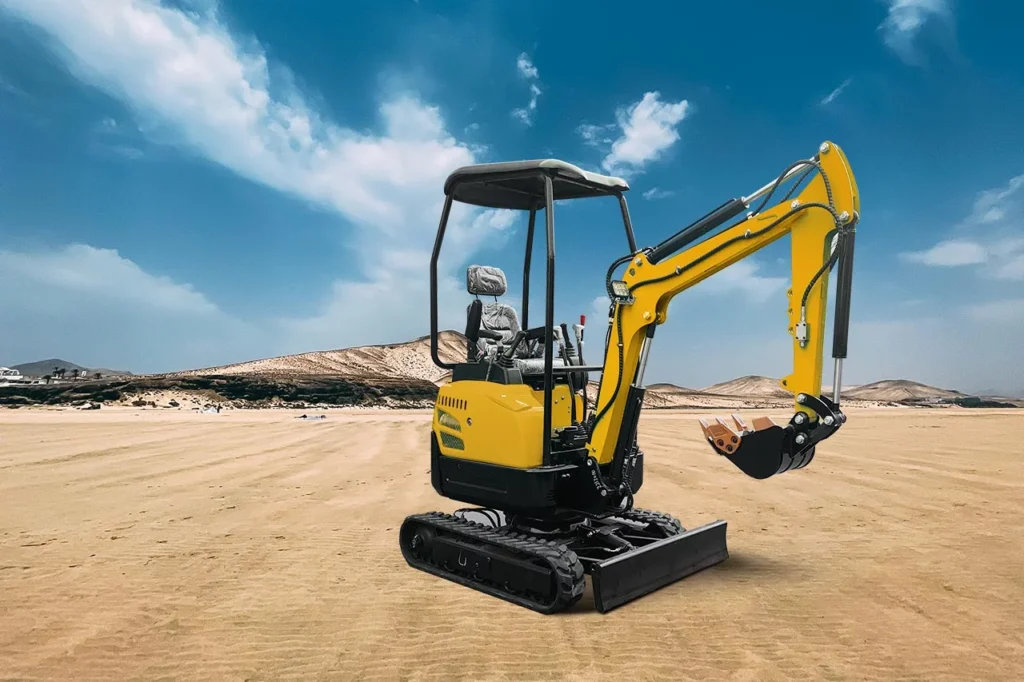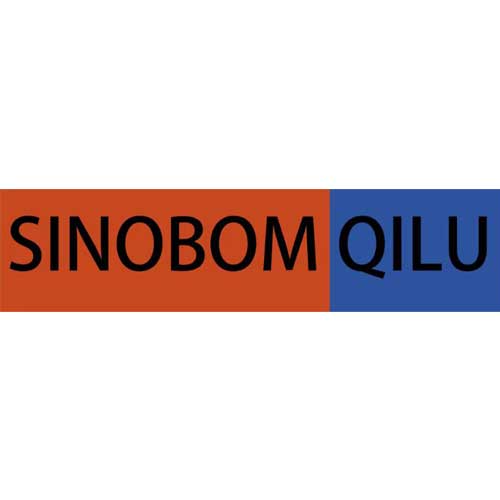Bienvenido a mi blog
Antes de sumergirnos en el contenido, me encantaría que te unieras a mí en mis plataformas de redes sociales, donde comparto más ideas, participo con la comunidad y publico actualizaciones. Así es como puedes conectar conmigo:
Facebook:https://www.facebook.com/profile.php?id=100087112105480
LinkedIn:https://www.linkedin.com/showcase/99327366/admin/dashboard/
Empecemos nuestro viaje juntos. Espero que encuentres el contenido aquí perspicaz, atractivo y valioso.
Índice
Introducción

When it comes to construction, landscaping, or other heavy-duty work, having the right equipment can make all the difference. A very small excavator is one such tool that has gained popularity among contractors, landscapers, and small business owners. While traditional large excavators are powerful and versatile, very small excavators offer unique advantages that are highly beneficial in specific applications. In this article, we will explore five compelling reasons why investing in a very small excavator can be a smart decision for your business or project.
What Makes a Very Small Excavador Ideal for Your Needs?
A very small excavator, as the name suggests, is a compact, highly maneuverable machine designed to perform tasks in tight spaces. These excavators are usually under 5 tons in weight, making them a great choice for smaller jobs that don’t require the heavy lifting capacity of a full-sized excavator. They provide impressive power in a smaller, more efficient package, offering flexibility for those working in confined or crowded environments.
Small-scale contractors who need to perform precise digging, trenching, or demolition work in small areas can greatly benefit from the capabilities of a very small excavator. These machines are often equipped with features like adjustable tracks, ensuring they can fit through narrow spaces, which is an advantage when working in urban settings, residential areas, or other limited-access sites.
Reason 1: Enhanced Mobility in Tight Spaces

One of the top reasons to invest in a very small excavator is its ability to move through tight spaces. Traditional excavators are often too large to fit into confined areas, such as between buildings or in narrow alleyways. A very small excavator, however, can easily maneuver around obstacles, providing the operator with greater flexibility and access to otherwise challenging job sites.
For example, when working on landscaping projects or small residential builds, the ability to move the excavator into narrow areas without requiring additional permits or road closures can save both time and money. This mobility is one of the key factors that make very small excavators so valuable in urban and suburban projects.
Reason 2: Lower Operational Costs
Small machines typically come with lower operating costs compared to their larger counterparts. A very small excavator requires less fuel and maintenance, which translates to reduced overall costs in the long run. Whether you’re using the machine for small excavation work, landscaping, or even minor demolition, you will notice a significant reduction in operational expenses.
Additionally, these machines are generally easier to repair and maintain, which further reduces maintenance costs. The compact size means that parts are smaller and easier to replace, and fewer components are involved, which can lead to a longer lifespan with fewer mechanical issues over time.
Reason 3: Versatility and Multifunctionality
Despite their small size, very small excavators are surprisingly versatile. These machines can be fitted with a variety of attachments, making them suitable for many tasks beyond simple digging. For example, you can equip a very small excavator with a bucket, auger, grapple, or hydraulic hammer to perform a wide range of tasks on the same machine.
This flexibility allows you to use the excavator across various applications, from digging trenches and foundations to lifting heavy loads and demolishing structures. By investing in a very small excavator with various attachments, you can reduce the need for multiple pieces of equipment, ultimately saving on rental or purchase costs for additional machinery.
Reason 4: Improved Efficiency on Smaller Job Sites
On smaller job sites, having the right equipment can significantly improve work efficiency. Very small excavators are designed for projects that require high precision but don’t need the massive power of larger excavators. They are particularly useful for residential or commercial work in built-up areas, where space is limited.
In addition to their compact size, these excavators have faster cycle times, meaning that tasks such as digging, trenching, and loading can be completed more quickly than with larger machines. This enhanced efficiency allows contractors to complete projects on time, which is especially important when working under tight deadlines.
Reason 5: Reduced Environmental Impact

With environmental concerns becoming more prominent in the construction industry, the push for sustainable equipment is growing. Very small excavators are often more fuel-efficient than their larger counterparts, helping reduce emissions and minimize the environmental footprint of a project. Smaller engines and lighter weights also lead to less soil compaction and reduced impact on the surrounding environment, making them ideal for eco-conscious contractors.
Furthermore, these machines often feature advanced hydraulic systems that are designed for low power consumption, ensuring that the machine’s impact on the environment is kept to a minimum. For businesses looking to adopt greener practices, investing in a very small excavator can be an essential part of the strategy.
Comparing Features
To help you make an informed decision, here’s a comparison table outlining key features of very small excavators. This will give you a better understanding of the various factors to consider when choosing the right machine for your needs.
| Característica | La mejor miniexcavadora BME 08 | Mejor excavadora BME 10 | Las mejores miniexcavadoras BME 12 |
|---|---|---|---|
| Motor | Koop/Briggs&Stratton | Koop/Briggs&Stratton | Koop/Briggs&Stratton |
| Peso operativo | 800KG | 1000KG | 1200KG |
| Powe | 7 KW/7,6 KW/13,5 CV | 7 KW/7,6 KW/13,5 CV | 7 KW/7,6 KW/13,5 CV |
| Profundidad máxima de excavación | 1300 mm | 1650 mm | 1790m |
Conclusión

Investing in a very small excavator offers a variety of benefits that can make a huge difference in small to medium-scale construction projects. These machines are compact yet powerful, versatile, and highly efficient, making them perfect for tight spaces and delicate tasks. Their lower operating costs, flexibility with attachments, and ability to access hard-to-reach areas can save contractors both time and money. Furthermore, the reduced environmental impact aligns with the growing trend toward sustainability in the construction industry.
If your work involves smaller projects or locations with limited space, a very small excavator could be the key to improving your operations and increasing overall efficiency.
PREGUNTAS FRECUENTES
How much does this cost?
The cost of a very small excavator can vary depending on factors such as size, brand, and included features. On average, prices range from $20,000 to $60,000.
What types of projects are ideal for a very small excavator?
Very small excavators are ideal for landscaping, small-scale construction, residential projects, utility installation, and work in confined spaces.
Can a very small excavator handle heavy-duty tasks?
While they are not as powerful as large excavators, very small excavators can still handle many tasks such as digging, trenching, and demolition, especially when equipped with the right attachments.
Are there any safety concerns with using a very small excavator?
Like all machinery, safety is a priority. Always ensure that operators are properly trained and follow safety protocols. Compact excavators are generally safer in tight spaces as they are easier to control.
Can I rent a very small excavator?
Yes, many rental companies offer very small excavators for short-term use, which is ideal if you only need one for a specific project or short-term tasks.
